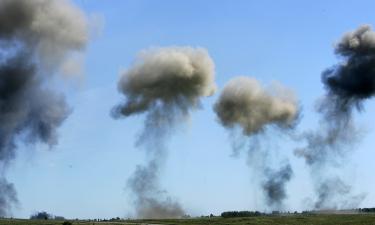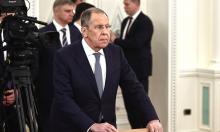There is no place for Russia in space
Russia is making pointless and even strange steps in and around space, and they are all the more sad because they cost the Russian budget a lot of money and deprive the nation of the space power status.
Why the United States would like to work with Russia in space, but Russia would not
The space race has been getting increasingly intense lately. Different countries declare their claims to the Moon. It appears that China is going to be the first to go there. The exploration or even the colonisation of Mars is next on the list.
Space exploration by private corporations is in full swing:
- Elon Musk's SpaceX,
- Richard Branson's Virgin Galactic,
- and Jeff Bezos's Blue Origin will soon make competition with government agencies.
It goes about not only peaceful, but also arms programs. Over the past 12 years, Russia, the United States, China and India have tested anti-satellite weapons capable of destroying space satellites, the backbone of modern communications and economics.
The following countries have space forces:
- Russia,
- USA,
- Iran,
- India,
- China,
- Great Britain,
- France.
The United States announced plans to build Deep Space Advanced Radar Capability radar system in the UK to counter "threats" from Russia and China and explore deep space. It was reported that the system was capable of detecting potential targets at a distance of up to 36,000 kilometers.
US wants to work with Russia in space
Against such a militaristic background, it becomes obvious that cooperation in space has gone into the background. Everyone works for themselves. Americans complain about the lack of transparency in the Chinese space program. For example, NASA chief Bill Nelson said in an interview with CNBC that the Chinese government was becoming increasingly aggressive in its successful space program. Unlike China, the United States could cooperate with Russia in space despite geopolitical tensions, Nelson noted.
"Back in the middle of the Cold War, 1975, an American spacecraft rendezvoused and docked with a Soviet spacecraft and the crews lived together for nine days. Ever since we have had cooperation between the Russians and the Americans in civil space. They are our partners on board the International Space Station," Nelson recalled.
Why did Russia launch Nauka (Science) module to the ISS?
Roscosmos announced in April that it would exit the ISS program in 2025 to build a space station of its own. Yet, it appears strange that Russia launched the new Nauka module to the ISS on July 20. NASA suspects that Russia is bluffing to solicit funding from the United States to repair the ISS in exchange for keeping its part of the space station running, arstechnica.com writes.
"One possibility is that the Russians are simply posturing. Some NASA officials have speculated privately that this may be an angle to obtain new funds from the United States. With the success of SpaceX's Crew Dragon vehicle and nearing availability of Boeing's Starliner, NASA is no longer annually sending hundreds of millions of dollars to Roscosmos to purchase Soyuz seats for access to the station. This was an important source of funding for Russia's space program," the article says.
However, the author points out, NASA would like the station to continue flying for another ten years, and the agency needs the Russians for the purpose:
"The first elements of the International Space Station were launched in 1998, and it was designed such that the US and Russian segments were dependent upon one another for attitude control, power, and other critical resources."
In a commentary for Pravda. Ru, Ivan Moiseev, the scientific director of the Moscow Space Club, denied this version. He considers it "highly unlikely."
"The United States has already created a working group to ensure the operation of the ISS in the absence of the Russian segment until 2030. Afterwards, they will be implementing their program to create commercial stations. Therefore, they have no reason to spend money on our segment. They will develop a mechanism when the undocked Russian segment will be replaced by their cargo ships," the expert noted.
He criticized the launch of the Nauka module as an untimely move and called it a waste of money. According to him, the module is designed to operate for 15 years, and this is an analogue to the current modules of the ISS — Zvezda and Zarya.
"They planned to launch the Nauka module back in 2007, but they eventually launched it at the time when it was no longer needed. It will take us a year to set it up and running, a spacewalk will be required too, which is an expensive experience. Russia is doing all this practically for nothing, because one would have to prepare all of that for sinking," Ivan Moiseev told Pravda. Ru.
The expert believes that a different power module is supposed to be used in the new Russian station, but it only exists on paper as a preliminary design, and the purpose of the station itself has not been determined either.
Subscribe to Pravda.Ru Telegram channel, Facebook, RSS!




